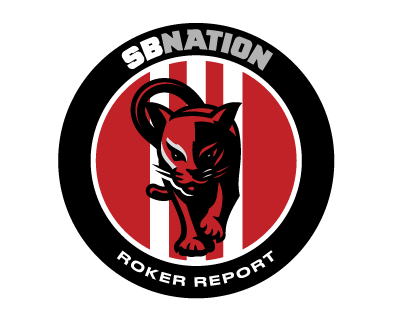On this day 91 years ago, a legendary Sunderland manager was born in the Northumbrian town of Mickley. Despite being born nearer the Tyne than the Wear, Stokoe was brought up in a Sunderland-supporting family, and went along to Roker Park to watch the lads play.
Of course, in footballing terms, he made his name at Newcastle after signing for the club as a 17-year-old apprentice. He made a goalscoring debut in a Christmas Day fixture against Middlesbrough; the first of almost 300 games for the black and whites that included skippering them to FA Cup success in 1955, which is still the last major trophy Newcastle have won.
Aged 30, he signed for Bury as a player before taking over as player/manager the following season – making him the second-youngest manager in the football league.
Sunderland supporters, of course, remember his time at Bury for less-than-fond reasons –Stokoe, standing over the injured Brian Clough on Boxing Day accusing him of ‘codding’ was something Clough never forgave, or forgot.
As a manager, Stokoe was making an impression – he got Bury to the league cup semis, and spells at Charlton, Rochdale and Carlisle followed before he joined top-flight Blackpool in 1970, but could not prevent them from being relegated to the second division. He won the Anglo-Italian cup with the Tangerines, but a sixth-place league finish didn’t meet the expectations of the fans who yearned for a swift return to the top flight.
:no_upscale()/cdn.vox-cdn.com/uploads/chorus_asset/file/22865742/183951955.jpg)
The 1972-73 season started well for Blackpool, who were pushing for a promotion place, but in the north east it was a different story. Alan Brown’s team were languishing near the foot of the second division table, and newspapers were speculating whether the man who oversaw Sunderland’s first two relegations from the top flight could also be the man who oversaw the unthinkable – a first relegation to the third tier.
Indeed, upon Brown’s departure, questions were raised about the club’s ambition for the season, with some commentators remarking that avoiding relegation would be a successful outcome.
Brown’s departure followed a 0-0 draw at home to Fulham – one of two draws and one win in the previous eight games. Caretaker Billy Elliott stepped in, overseeing two draws and two defeats, before Stokoe was appointed.
Stokoe told the Journal:
I want to restore the pride of this club. But, then, words come easily on days like this and, in the end, a lot is going to depend on how the players react.
Sunderland had played out a 0-0 draw with Stokoe’s Blackpool at Bloomfield Road earlier in the season, and Bob had been impressed with what he saw:
Apart from Wolves, they are the best side I’ve seen at Blackpool all season.
The goals are coming, Obiously the problem is to try to stop so many being conceded.
My aim at this stage is to help bring about a greater consistency. I will give the players my respect and I expect the same in return.
As far as discipline goes, I don’t mind the players taking a drink after a match. They have to unwind.
What I am particular about is that they do it at the right time and in the right quantities.
Sunderland were in 19th place in a 22 team league when Stokoe took over, and while the FA Cup success that season naturally takes all of the plaudits, the job he did in the league was equally remarkable.
Despite losing his first game in charge against Burnley at Roker Park, Stokoe led the club to sixth place in the league – 13 league wins, five draws and five defeats in the 23 games that followed the Burnley fixture – a stark contrast from the four wins, seven draws and seven defeats in the 18 games before he took over.
:no_upscale()/cdn.vox-cdn.com/uploads/chorus_asset/file/22865739/1300572708.jpg)
Sixth and fourth place finishes followed before winning the title in 1975-76 – and returning Sunderland back to the top flight for the first time since 1969-70.
Unfortunately, the following season got off to a poor start, with four draws and five defeats in the first nine league games, and after a Roker Park defeat to Aston Villa, Stokoe resigned, citing ill health.
His subsequent managerial career was a revisiting of his previous haunts – once again managing Bury, Blackpool, Rochdale and Carlisle before, of course, returning to Roker Park in an attempt to rescue the club from relegation to the third tier.
He was unsuccessful, of course, but that certainly wasn’t any fault of his.
He passed away at the young age of 73 (ironically enough) after being ill for some time with Alzheimer's, and is memorialised forever with the Stokoe Statue outside of the Stadium of Light. That’s certainly a huge achievement for a man who spent the vast majority of his playing career north of the Tyne – underlining the esteem he’s held in, and the way he conducted himself throughout his time here.
I’ll leave the final words to Mr Stokoe – speaking on the eve of our FA Cup Semi against Arsenal.
I’m back among my people. My father was a Sunderland supporter and I feel the same as those on the terraces because I used to be there too.
Although I was with Newcastle as a player, Sunderland was always my first love. Success for Sunderland is not just an ambition – it’s a religion.

/cdn.vox-cdn.com/uploads/chorus_image/image/69887002/1231827174.0.jpg)
Loading comments...